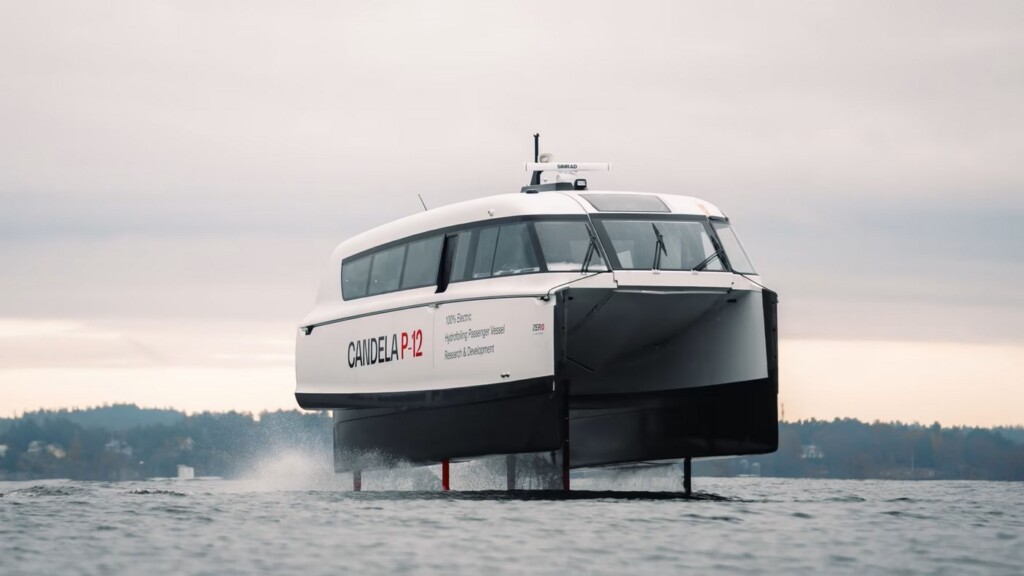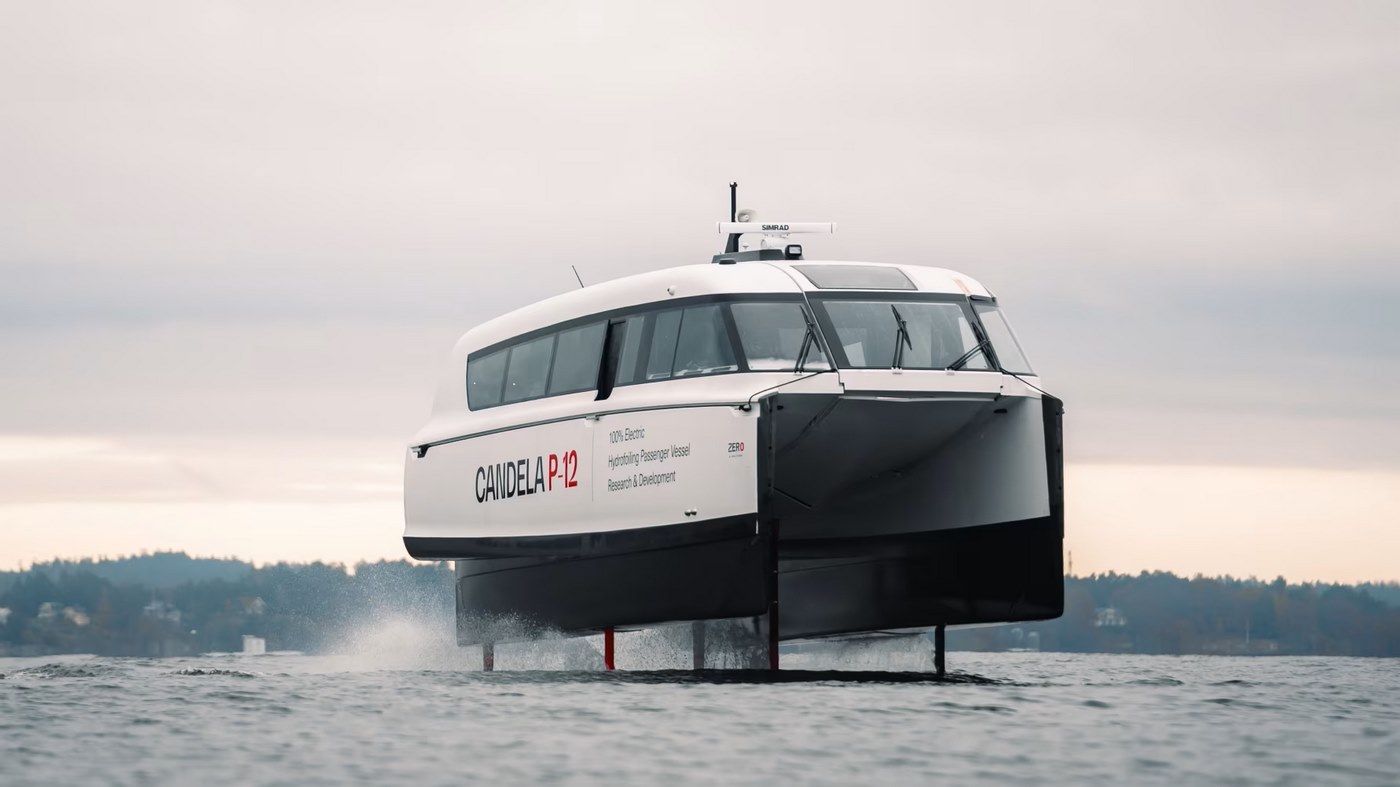
A 30-seat hydrofoil ferryboat is set to enter mass production ahead of its introduction into the Stockholm transportation network next year.
It’s the world’s first electric flying passenger ship, and it recently completed all tests with flying colors, delighting the manufacturer, Candela Technology.
During its first flights, Candela P-12 confirmed its top speed of 30 knots, (35 mph) a record for electric passenger vessels. With a range of up to 50 nautical miles, it is also the first electric ship with the practical endurance to cover most coastal transport needs.
Tests also confirmed the minimal wake, which opens up for exemptions from speed limits, as the P-12 will neither erode coastlines nor damage docks and moored ships, even at full speed.
“The P-12 will let you use these waterways as green highways, enabling fast intra-city connections,” states company president Gustav Hasselskog. “Whether it’s public transport fleets, VIP services, or private customers, it will revolutionize how we travel on water.”
The P-12 employs computer-guided hydrofoils to elevate its hull above water friction. When on its foils at speeds over 18 knots, the Candela P-12 consumes 80% less energy than traditional high-speed vessels.
MORE EV INNOVATION: Swedish Firm Will be Mailing Flat-Packed Car with Top Speed of 55 for Urban Commuting
This innovation addresses the primary challenges that have hindered the widespread adoption of electric, fast vessels to date: limited range and slow speeds due to the excessive energy consumption of conventional hulls.
Priced at €1.7 million, the 30-seat Shuttle variant of the P-12 matches the cost of similar-sized ICE vessels and is priced significantly lower than other electric options.
MORE COOL HYBRID WATERCRAFT: Incredible World First Electric Seaglider Vehicle Ready For Production After Successful Test
Once in service, operators can expect reduced ‘fuel’ costs by up to 90% compared to diesel vessels. The C-POD motors require minimal servicing, and the vessel is designed for single-crew operation, which further slashes costs.
In total, the P-12 is expected to cut costs per passenger kilometer by up to 50%, achieving a similar operational per-passenger economy as a hybrid electric bus.
WATCH the P-12 in action…
SHARE This Ferry Of The Future With Your Friends On Facebook Or X…




















